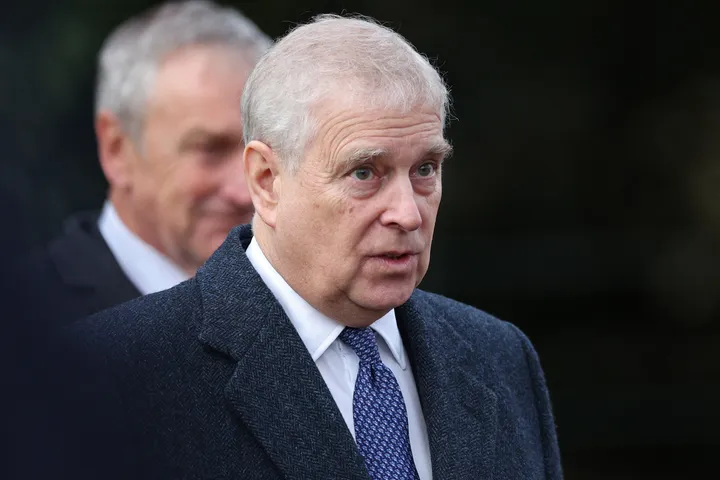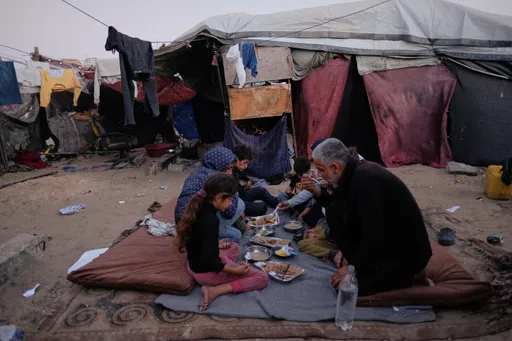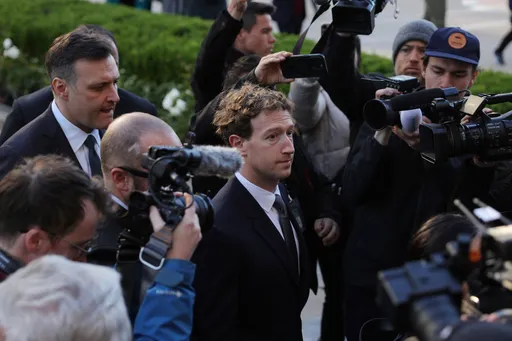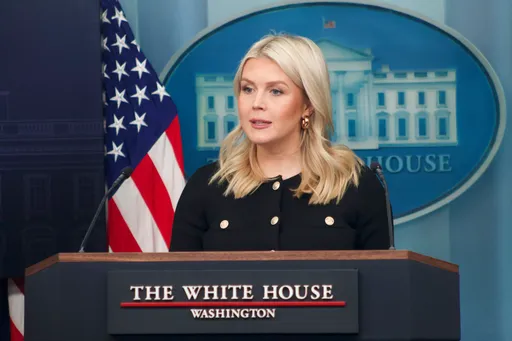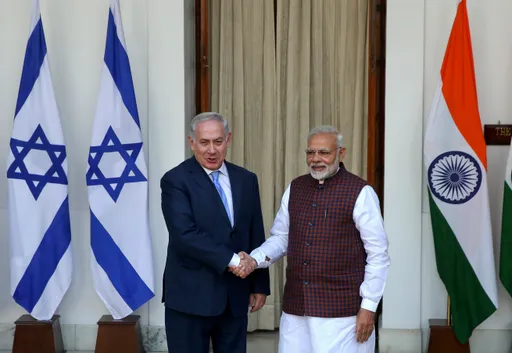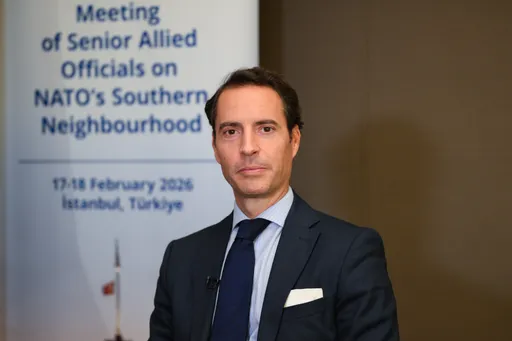As the investigation on the disappearance of Jamal Khashoggi lingers on, the fallout from the journalist's disappearance only continues to grow.
Almost two weeks after the Saudi Arabian journalist went missing from the kingdom's consulate in Istanbul, he is all but presumed dead.
Riyadh has yet to provide a believable narrativeover the journalist's failure to leave its consulate.
Turkish sources have said they have proof that he was "tortured, interrogated and dismembered" within the consulate.
Sarah-Leah Whitson, executive director of The Middle East and North Africa division of Human Rights Watch, believes there is enough evidence that Khashoggi is dead.
"The evidence that he entered and did not leave the consulate of his own accord, there's no dispute about that," says Whitson. "What we don't know, of course, is what happened to him inside. What we have is a lot of suspicious circumstantial evidence and his continued disappearance that sadly indicate that Jamal [Khashoggi] was killed."
Meanwhile, some Saudi Arabian social media users have taken to defending Saudi Arabia's role in the disappearance, and unapologetically at that.
"You leave your country arrogantly ... we return you humiliated," Faisal al Shahrani tweeted.
Not bothering to cover up what had happened to Khashoggi, Prince Khalid Bin Abdullah al Saud sent a message to another Saudi dissident, "Don't you want to pass by the Saudi Embassy? They want to talk to you face to face."
But in Saudi Arabia, this seems to be more of the same. Only last year, a 14-year-old boy was arrested for a humorous video where he danced to the Macarena. In Saudi Arabia, you are one social media post away from imprisonment or death.
Khashoggi, a thorn in MBS's side
Khashoggi often laughed at the idea that Saudi Arabia under Mohammed bin Salman was pushing for a version of "moderate Islam."
"Saudi Arabia, which is today fighting political Islam, is the mother and father of political Islam ... the Kingdom was founded on the idea of political Islam, to start with," he tweeted.
This seems to be at odds with the PR campaign trying to sell Mohammed bin Salman. He "tried very hard over more than three and a half years to fashion an image of himself as a reformer and even a revolutionary,” said Bruce O Riedel, an expert on Saudi Arabia at Brookings. “Now that veil has been torn apart.”
The PR campaign initiated by MBS included a lifting of the ban on women attending sports events and concerts in stadiums.
He was also known as the architect of the kingdom's move to lift a ban on women driving cars in the country, that also saw several activists and campaigners detained at the same time.
The detentions had led to deterioration and suspension of ties between Canada and Saudi Arabia.
The Saudi-US relationship has always been a skewed one. On three separate occasions, Trump has humiliated the kingdom, counting on their need for him. Trump told a campaign rally in Southaven, Mississippi last Tuesday, "We protect Saudi Arabia. Would you say they're rich? And I love the king ... King Salman, but I said 'King, we're protecting you. You might not be there for two weeks without us. You have to pay for your military'."
In return, MBS said, "I love working with him." The reason for his passive response is clear. US support is essential for his ascension to the throne.
But the millions of dollars MBS has paid to PR firms to burnish his image in the West as "a reformer in a hurry" may have just been overturned by the possible murder.
Khashoggi, never one to let the prince go, tweeted:
"If a prince can pay $1 billion in return for his freedom, how much will a prisoner of conscience have to pay? How much will we all pay to get our freedom?"
In an increasingly unconvincing narrative, the Saudi Arabian state TV channel claimed the 15 Saudi 'hit squad,' who came and left Turkey within hours, were “tourists.”
Coincidentally during their "tour of Istanbul" the men, who were identified by Turkish security sources as members of Saudi Arabia's security and intelligence apparatus, were seen spending a considerable time in the Saudi consulate around the same time Khashoggi went missing.
Who is behind the strings?
While much of the kingdom seems to believe that Khashoggi’s disappearance is part of a larger conspiracy orchestrated by its enemies, a number of former security officials believe that this has caused a crack in the new regime, and it all began when Saudi Arabian intelligence fell under MBS's purview.
“The realignment of the [national intelligence service reporting directly to MBS] has been a disaster,” said an adviser to one such official. “It has become a hyper-political tool for the diwan … that has removed any semblance of accountability and encouraged abuse of power on a scale I have not witnessed before in modern times. There has been a broad descent into authoritarianism. The scale and pace of repression have destroyed any embryonic seeds of civil society and discourse. There really is no limit to the consequences of even polite disagreement, let alone dissent.”
Many Saudis however, who have spent time with the prince, say they would not be surprised if MBS is found to be behind Khashoggi's disappearance or death. They describe a dark and bullying young man in a hurry, with absolute power, who does not tolerate dissent.
"This never would have happened without MBS's approval. Never, never, never," said one former senior US diplomat with longstanding ties to the kingdom over several administrations.
"He doesn't hide the fact that he's authoritarian. He's not embarrassed by it," said one person close to the royal court. "He definitely sees himself in messianic terms, as a man of history."
Speaking to Bloomberg News only this month, the crown prince said, "I didn't call myself a reformer."
"When you come to political reforms, he's as reactionary as the Wahhabi political establishment," said David Ottaway, a Middle East fellow at the Wilson Center.
"While the country used to be run more by consensus of the senior princes, it is now down to one guy, with a little input from his dad."
We're discovering what this 'new king' is all about, and it's getting worrisome," Ottaway said. "The dark side is getting darker."
One anonymous source speaking to The Washington Post comments that while Mohammed's involvement "flies in the face of all the effort that he's put into improving relations" with the West, "he's also very inexperienced. I don't think he has a deep understanding ... of what the reaction would be."
But this time, it seems the winds are blowing against him. In Washington, a bipartisan congressional move is underway in the Senate to slap MBS with sanctions under the Magnitsky Act, which can be applied no matter what Trump feels about his chosen Saudi prince.
If MBS is found to be behind Khashoggi's disappearance, at the age of 33, and only 16 months into his role as crown prince, then the question must be posed: what could he be capable of as the king of an entire country?
The beginning of the fall
These changes have not come without consequences for the young prince.
"Fearing for his security, the crown prince is said to spend many nights on his half-billion-dollar yacht moored in Jeddah," Bruce Riedel writes for Al-Monitor.
The Crown Prince bought the 440-foot-long yacht-cum-refuge, in late 2016 after spotting it while vacationing in the south of France.
He bought it from a Russian billionaire who vacated it the day the deal was signed.
For now, however, the Saudis intend to blame elements within the kingdom's "deep state" security apparatus for the journalist’s disappearance, said a source.
The source also stated that the Saudis are hoping to build a firewall around Muhammed bin Salman to protect him from the coming backlash.
Donald Trump also raised the possibility that “rogue killers” could have been responsible for Khashoggi's disappearance, as the US president dispatched US Secretary of State Mike Pompeo to meet with Saudi Arabia’s King Salman.
Trump also warned of "severe punishment" for Riyadh if it turned out that the kingdom had any role in the journalist's murder, but reiterated his stance that Washington's arms sale to Saudi Arabia would not be cancelled over US economic concerns.
But Riyadh already faces an immediate blow to its trade agenda, as business moguls, media sponsors and international firms are pulling out of a high-profile investment summit, named "Davos in the Desert," which was set to take place later this month in Riyadh and to be hosted by the kingdoms de facto ruler, Crown Prince Mohammed bin Salman.
“I had high hopes for the current government in the Kingdom of Saudi Arabia and its leader Crown Prince Mohammed bin Salman and it is why I was delighted to accept two directorships in the tourism projects around the Red Sea,” Richard Branson said in a statement published on his company's website, as he suspended directorships of the two tourism projects in the aftermath of Khashoggi's disappearance.
The Saudi stock market fell as much as 7 percent in early trade on Sunday. By close, it had recovered some losses, ending down 3.5 percent and losing $16.5 billion of market value.
The Saudi crown prince's track record on investment summits has been questionable. After hosting a major business summit at Riyadh’s Ritz Carlton, where a humanoid robot named Sophia was awarded Saudi citizenship, he would go on to turn the same hotel into a luxury prison following sweeping arrests. Some of the convicts were only released after they signed away some of their assets, giving it the air of a shakedown.
Once asked if anything could stop him, the headstrong prince replied, “Only death.”
Not the first, or the last
Jamal Khashoggi is not the first Saudi in exile to be killed. Few remember exiled Nassir al Said who ran an opposition radio programme and disappeared from Beirut in 1979, never to be found.
Prince Sultan bin Turki was kidnapped from Geneva in 2003, after calling for reform in Saudi Arabia.
Prince Turki bin Bandar al Saud, who applied for asylum in France, 'disappeared' in 2015 after visiting Morocco. He had called for reforms in Saudi Arabia.
Prince Saud bin Saif al Nasr criticised the Saudi Arabian monarchy while in exile. In 2015, he disappeared with no trace.
Prince Khaled bin Farhan was a Saudi dissident living in Switzerland. Falling for a business offer from a Russian-Italian company, he was tricked onto a plane, abducted and imprisoned for seven years.
Maj Gen Ali al Qahtani, an officer of the Saudi Arabian National Guard, died while in custody at a luxury hotel in Riyadh showing signs of abuse: a twisted neck and a badly swollen body after Crown Prince Mohammed bin Salman’s, also known as MBS, recent so-called anti-corruption drive.
These are the well-known cases. There are many, many others.
Within the kingdom, it's reported that thousands waste away in jails. Human rights activists are branded as terrorists for daring to speak out, waiting for their death penalty by beheading on charges Human Rights Watch says "do not resemble recognised crimes."
Inside the kingdom, it seems no 'dissent' is tolerated.
“If [you] do not side with the government, you are seen as a traitor. The number of dissidents is unprecedented,” said one Saudi national living in exile in the United States.
“I know a lot who were tricked to go back and then were arrested. This has been done [many times]. It’s traditional practice, I guess, to trick people to go back.”
At home, the number of Saudis punished for dissent is massive. A senior official from a Gulf country said several thousand Saudi public figures have been rounded up since last September, a number not reported in local and international media.
Those arrested in Saudi Arabia, according to their families, were also approached to make pledges promising not to critique the government, or even asked to spread messages on social media to millions of followers.
As the story unfolds, the usual bluster from Riyadh continues unabated. It remains to be seen who, if anyone, will be held accountable for what the rest of the world has already recognised. A tale of grotesque power and a messiah complex gone rogue.


